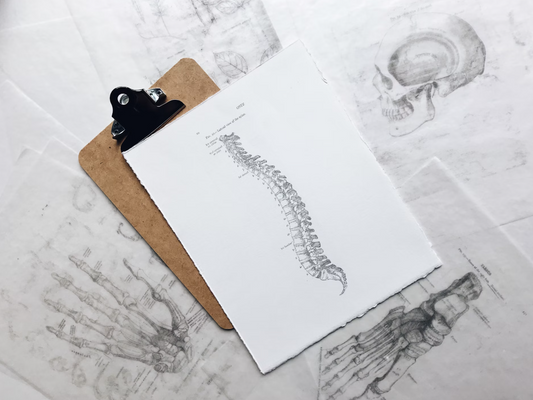When we think of breathing, we often focus on its primary function: oxygenating our bodies and removing carbon dioxide. However, there’s a deeper connection between the respiratory and endocrine systems. Our breathing patterns can directly impact hormone levels, affecting everything from stress response to metabolic processes. In this blog, we’ll explore how breathing influences hormone production, the science behind this connection, and ways to harness mindful breathing to support hormone health.
The Link Between Breathing and the Endocrine System
The endocrine system is a network of glands that produce hormones, which are responsible for regulating vital functions such as metabolism, immune response, mood, and reproductive health. Many of these hormones are sensitive to stress levels, blood oxygen, and carbon dioxide concentrations—factors that are influenced by the way we breathe. By understanding how our breathing affects these hormone levels, we can leverage breathing techniques to promote better balance and overall wellness.
The Stress Connection: Breathing, Cortisol, and the Fight-or-Flight Response
One of the most direct ways breathing influences hormones is through its effect on the stress response. When we encounter stress, our body releases cortisol, the “stress hormone,” which prepares us to react to perceived threats. This process is driven by the sympathetic nervous system and involves quick, shallow breathing.
- Shallow Breathing and Cortisol: When we’re stressed, we tend to breathe faster and shallower, which signals the body to stay in “fight-or-flight” mode. Elevated cortisol levels over prolonged periods can have negative effects on health, leading to issues like weight gain, suppressed immune function, and disrupted sleep.
- Deep Breathing and Cortisol Reduction: Deep, slow breathing, on the other hand, activates the parasympathetic nervous system (often called the “rest-and-digest” system), which counteracts the stress response and reduces cortisol production. Techniques like diaphragmatic breathing or box breathing can help lower cortisol, promoting relaxation and better hormone balance.
Breathing and Blood Sugar: The Role of Insulin and Glucose Regulation
Research shows that breathing patterns may also influence insulin, the hormone responsible for regulating blood sugar levels. When stress or anxiety increases cortisol levels, it can lead to an increase in blood sugar as the body prepares to use energy for a fight-or-flight response. For individuals with blood sugar concerns, like those with diabetes or insulin resistance, managing stress through controlled breathing can be particularly beneficial.
- Controlled Breathing and Blood Sugar: Practicing deep breathing exercises can help maintain stable blood sugar levels by keeping cortisol levels in check, reducing the likelihood of stress-induced blood sugar spikes.
- Mindful Breathing and Insulin Sensitivity: Improved insulin sensitivity is one of the long-term benefits of regular mindfulness and breathing practices. Studies have shown that individuals who practice regular deep breathing and relaxation techniques have better glycemic control and reduced risk of insulin resistance.
Breathing’s Impact on Thyroid Hormones and Metabolism
The thyroid gland regulates metabolism through hormones such as thyroxine (T4) and triiodothyronine (T3). When we breathe slowly and deeply, we improve oxygen delivery to cells and support optimal metabolic function, which can positively influence thyroid health.
- Stress and the Thyroid: Chronic stress can suppress thyroid hormone production by increasing cortisol levels, which inhibits the conversion of T4 to T3, the more active form of thyroid hormone. Over time, this can lead to symptoms of an underactive thyroid, such as fatigue, weight gain, and depression.
- Breathwork for Thyroid Health: Deep, controlled breathing can reduce cortisol levels, helping to support healthy thyroid hormone production and improve metabolic function. Regular breath-focused relaxation can thus play a role in optimizing metabolism and energy balance.
Oxygenation and Growth Hormone: Breathing and Cellular Repair
- Growth hormone (GH) plays a critical role in cellular repair, tissue growth, and maintaining muscle mass. GH is primarily secreted during deep sleep, but it’s also influenced by oxygenation levels.
- Oxygen and Growth Hormone Release: Optimal oxygen levels in the blood support the release of growth hormone. Practicing breathing techniques that enhance lung capacity and oxygen intake—such as diaphragmatic breathing—can help improve blood oxygen levels, indirectly supporting growth hormone production.
- Breathing for Recovery: Athletes and fitness enthusiasts can benefit from focused breathing practices to increase GH levels for better recovery, muscle repair, and overall performance.
Breathing and Sex Hormones: Supporting Estrogen and Testosterone Balance
Breathing can influence levels of sex hormones like estrogen and testosterone, both of which are impacted by stress and cortisol levels. Imbalanced cortisol can lead to disruptions in the production of these hormones, potentially affecting mood, libido, and overall reproductive health.
- Stress Management and Sex Hormones: Chronic stress has been shown to decrease testosterone and disrupt estrogen levels. By incorporating deep breathing techniques that reduce stress, we can help protect the balance of these hormones.
- Hormone Health Through Mindful Breathing: Practices like yoga and meditation, which emphasize slow, controlled breathing, have been linked to more balanced hormone levels, improved mood, and enhanced reproductive health.
Practical Breathing Techniques to Support Hormone Health
Incorporating regular breathing exercises into your daily routine can be an effective way to support hormonal balance. Here are some simple practices to get started:
- Diaphragmatic Breathing (Belly Breathing): This technique involves inhaling deeply into the diaphragm rather than the chest. Place one hand on your chest and the other on your abdomen. Inhale slowly through your nose, filling your belly with air, then exhale through your mouth. This technique calms the nervous system and reduces cortisol.
- Box Breathing: Inhale for four counts, hold your breath for four counts, exhale for four counts, and hold again for four counts. This structured breathing helps slow the heart rate, reduce anxiety, and support a balanced stress response.
- Alternate Nostril Breathing: Common in yoga practice, alternate nostril breathing helps balance oxygen flow and can promote relaxation. Close your right nostril with your thumb, inhale through your left nostril, then close the left nostril and exhale through the right. Repeat, alternating nostrils for each breath cycle.
- 4-7-8 Breathing: Inhale for four counts, hold for seven, and exhale for eight. This technique is particularly effective for stress relief and lowering cortisol levels, promoting relaxation before sleep.
Additional Lifestyle Tips for Hormone Health
While breathing exercises are an excellent tool for supporting hormonal balance, other lifestyle factors also play an important role:
- Regular Physical Activity: Exercise can help regulate cortisol levels, improve insulin sensitivity, and support balanced sex hormones.
- Mindful Nutrition: A balanced diet rich in antioxidants, fiber, and healthy fats can support hormone health and reduce oxidative stress.
- Consistent Sleep: Quality sleep is essential for hormone production, including growth hormone, melatonin, and cortisol. Incorporating calming breathing exercises before bed can enhance sleep quality.
Conclusion
Our breath is a powerful tool for influencing hormonal balance and supporting overall wellness. By practicing mindful breathing, we can reduce stress, regulate cortisol, and even support the function of hormones related to metabolism, growth, and reproductive health. Adding deep breathing exercises to your daily routine is a simple yet effective way to take charge of your hormonal health naturally. Remember, just a few minutes a day can make a significant impact, helping you breathe better, feel better, and live more harmoniously with your body’s natural rhythms.




